Prof. Murray Lark delivered statistics research methods module for University of Zimbabwe students
June 12, 2023
I recently read a remarkable book called Victorians and Numbers (Goldman, 2022). This tells the story of how a diverse set of academics, campaigners and politicians in Victorian Britain were enthused by the idea of collecting, analysing and visualising data to identify social problems and injustices and to support policies to address them. Parallel movements in …
Completing a PhD: Dr Chris Chagumaira reflects
December 13, 2022
Dr Christopher Chagumaira successfully defended his PhD thesis in September 2022. He was part of the first cohort of PhDs with the UoN-Rothamsted Graduate Centre for International Agriculture. His thesis focused on understanding and communicating uncertainty in spatial predictions of soil micronutrients for various stakeholders (including policymakers, farmers, and managers). He is now a Research …
The legacy of soil surveys
December 5, 2022
December 5 is World Soil Day. According to the UN, the purpose is to ‘focus attention on the importance of healthy soil and to advocate for the sustainable management of soil resources’. In this post, Prof Murray Lark reflects on the history of soil surveys and how they can aid our understanding and practices of …
How should uncertainty in spatial information be communicated?
November 12, 2022
This post is written by Dr Christopher Chagumaira with contributions from Prof Murray Lark. Many and varied people have to make decisions about environmental management, be they farmers, policy-makers or managers, and spatial information about environmental variables (e.g., soil properties) is essential for this task. Within the Future Food Beacon, the GeoNutrition project is concerned …
Soils and decarbonisation: What future for agriculture?
November 11, 2022
It is decarbonization day at COP27 today. One of the ways to reduce carbon is capturing it in the soil. Soils are hugely important for our futures here on this planet. But how do soils capture carbon? And how can we develop agricultural practices that better support carbon sequestration in soils? In this post, Malcolm …
Next Generation X-ray Computed Tomography system awarded to UoN Hounsfield Facility, boosting soil research capacity
September 27, 2022
Soils represent a major store of global carbon, much more so than that held in vegetation or the atmosphere. However, this reservoir of soil organic carbon (SOC) is highly susceptible to destabilisation and loss, leading to declines in soil health, loss of biodiversity, and nutrient capital, and the release of harmful greenhouse gases (GHGs). We …
Unlocking the science behind traditional farmer practices: An interview with Muneta Grace Kangara
November 24, 2021
Muneta Grace Kangara is a Research Fellow on the Translating GeoNutrition: Supporting policies to reduce mineral micronutrient deficiencies in Zimbabwe project. She was recently awarded a Rank Prize Visionary Award for Early Career Researchers in Nutrition (2021). We spoke to Muneta about her work, how she became a researcher, and why she is passionate about …
Plant root breakthrough leads to Science paper – Bipin Pandey and Rahul Bhosale tell us how it happened!
January 22, 2021
Dr. Bipin Kumar Pandey (above) is a Research Fellow in the School of Biosciences at the University of Nottingham. He received a 12-month PhD+ award from the Future Food Beacon in April 2018. Dr. Rahul Bhosale is a Nottingham Research Fellow in Phenomics and Functional Genomics at the Future Food Beacon, University of Nottingham. He …
The new agricultural bill: soils, sustainability and farming
February 4, 2020
It may have already left your news feed, but a few weeks ago a new agricultural bill was presented in parliament. We spoke to some of our local soil and plant scientists, Prof Sacha Mooney, President of the British Society of Soil Science, and Prof Malcolm Bennett, and Prof David Salt on what the new …
Predicting micronutrients in the soil: an interview with Christopher Chagumaira
November 13, 2019
Christopher Chagumaira is a UoN-RRes PhD studentship recipient. His project is titled: Geospatial modelling of soil geochemistry at national scale for improved human nutrition and he is supervised by Prof Murray Lark (UoN), Prof Martin Broadley (UoN), Dr Alice Milne (RRes), Prof Patson Nalivata (LUANAR)and Dr Joseph Chimungu (LUANAR). Why did you decide to do …

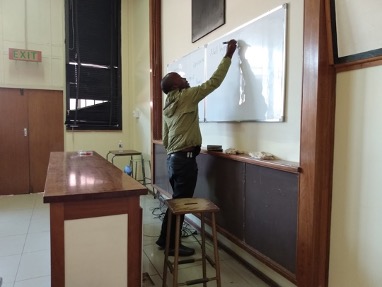

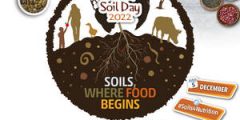
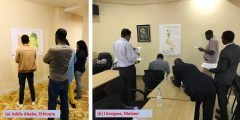
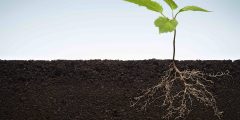
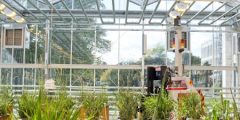
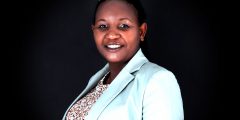
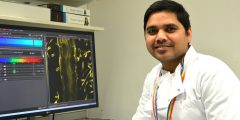
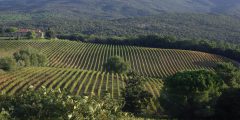
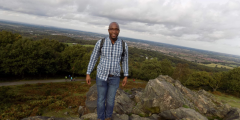
Recent Comments